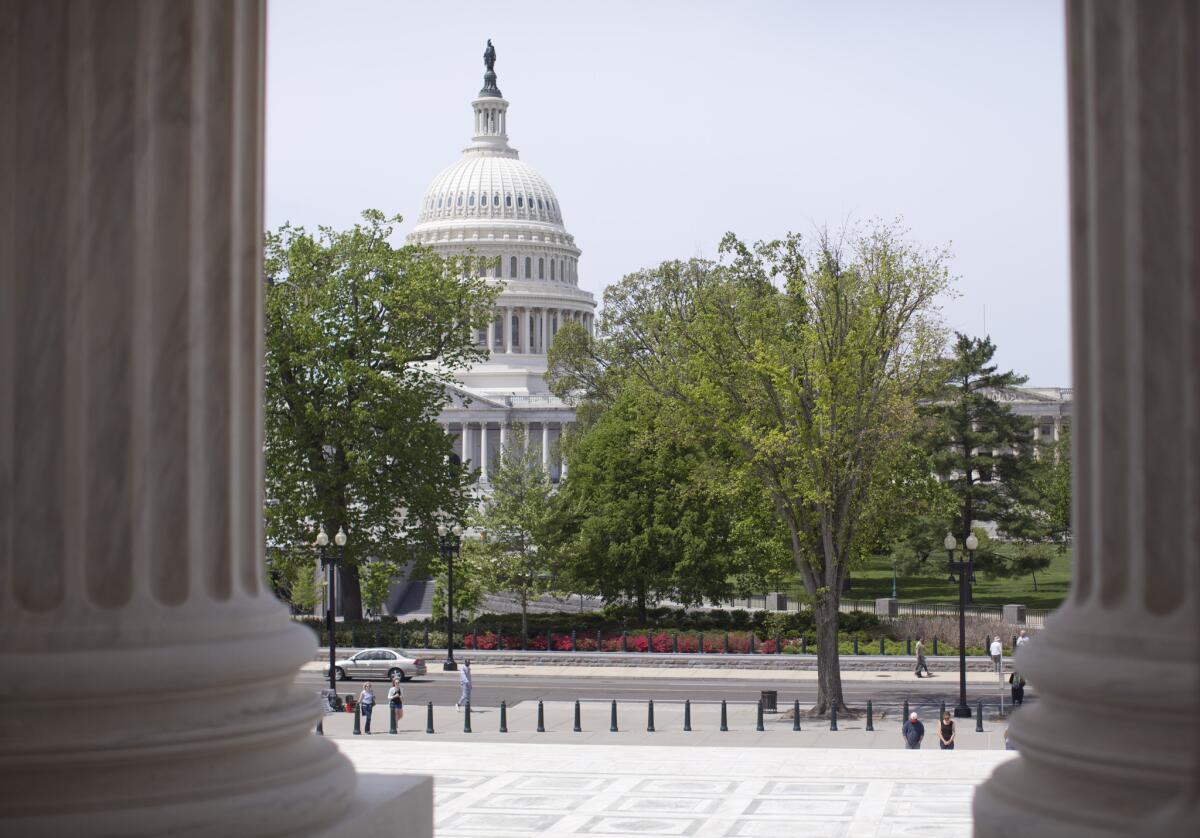Opinion: A common-sense immigration fix -- to everyone but Congress, that is

- Share via
You know it will never happen, but Congress should fix ambiguities in the Immigration and Nationality Act that led the Supreme Court to rule Monday that some would-be immigrants lose their place in line because they age faster than the immigration bureaucracy moves.
The case involves parents who apply for visas to enter the country both for themselves and for their children and other family members who are minors, something allowed under the law. But the process takes so long that often the children reach age 21 before the parent receives a visa. The federal government says that means the children have to start the process over with a separate application, forcing families to either separate or to bring some of the family to the United States illegally.
Immigration advocates sued, arguing that the intent of the law was to allow families to immigrate, something that is thwarted when the children age out during the drawn-out process, which can takes years, if not decades. And the Supreme Court ruled 5 to 4 Monday that the age 21 threshold is what matters most.
In a mark of how arcane the details and fuzzy the legalisms, there was no majority opinion. President Obama’s two appointees, Elena Kagan and Sonia Sotomayor, took opposing views, Kagan writing the opinion and Sotomayor voting in the minority. And members of Congress, including Sen. John McCain (R-Ariz.), filed a brief opposing the government’s interpretation of the law they voted in.
There are political and philosophical arguments against multi-generational visas, especially as the families get extended and start adding on cousins and others outside the nuclear unit. But it’s not the kind of situation that should be determined by the Supreme Court. It’s a national policy issue, and if Congress intended the act to allow for family immigration, then it should fix the act to make that clear. And if that was not the intent (though it’s hard to justify welcoming parents but not their children), then Congress should make that fix.
The key issue here is fairness. Parents who apply in good faith and follow the rules shouldn’t be penalized because of the glacial process of getting proper documentation. This is just the kind of dysfunction that leads to illegal immigration.
Congress should fix that. Though, as I said at the beginning, that will never happen with this Congress, the least productive in more than a generation.
Follow Scott Martelle on Twitter @smartelle
More to Read
A cure for the common opinion
Get thought-provoking perspectives with our weekly newsletter.
You may occasionally receive promotional content from the Los Angeles Times.










